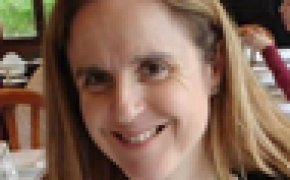The Housing Team grants changes in own home – changes which will make
it possible for the citizens to cope themselves or with less help.
In 2003 the free choice model was introduced in the Danish municipalities which opened for different ways of administration and organisation of the work and procedures in the municipality. In Aarhus they chose to centralise all work regarding assessment and make watertight shutters between the caregivers and the health care assessors.
Previously the assessors were spread out in the different districts – they
were close to the citizens, but also had a lot of other tasks, and the
processing was not homogeneous. The municipality decided to centralise this function and established 3 positions as health care assessors regarding changing in own house (the housing team). Regardless of several organisational changes the Housing Team has worked like this since 2005.
Today the team is very experienced and work together like a high
performing team, they acknowledge the positive effect of being
responsible for the procedures of handling the citizens request for major
changes in their houses, to make it possible for them to stay in own home,
and manage without help. This way of organising the work keeps them
focused and the citizens benefits from this.
The team works for all adults in the municipality. It is mainly vulnerable
groups like people with a handicap, people who suffered injuries in
accidents and senior people.
Resources needed
The Housing Team have no knowledge of the budget (their superiors manage
this) and can focus on the good practice, the law, the procedures.
Evidence of success
The most valuable benefit of the Housing Teams work is that the citizens
can get a part of their old life back and be able to get out of the house and
participate in the society. The citizens also appreciate the fact that they do not have to live in a nursing home or other institution but can stay in own home.
The team handles 3-400 cases every year. The team emphasizes the importance of involving the citizens, so the majority are able to understand and accept the decision.
Difficulties encountered
The team experienced that their decision could be overruled by the politicians. This is not happening very often these days. When the team was established and the function centralised, it was also a challenge for the colleagues to get used to the new procedures.
Potential for learning or transfer
This good practice is based on and emerged from Danish legislation and
the municipalities option to choose themselves how to manage. The
Danish society is known for having a high standard regarding services to
the citizens (and high taxes of course). In other countries the prerequisites
and terms will be different and there might not be a basis for a good
practice like this. On the other hand, the idea of having a high performing
experienced team to handled difficult and delicate matters can be an inspiration. We also realised that it is a good idea to have these decisions
taken by an authority not too involved with and too close to the citizens.
The high quality of buildings in Denmark is also an important
prerequisite – we have regulations to secure the quality of buildings
and this means that there is a good basis for making changes and make
the home fit for a person with handicaps or reduced functions.
Tags: Housing








